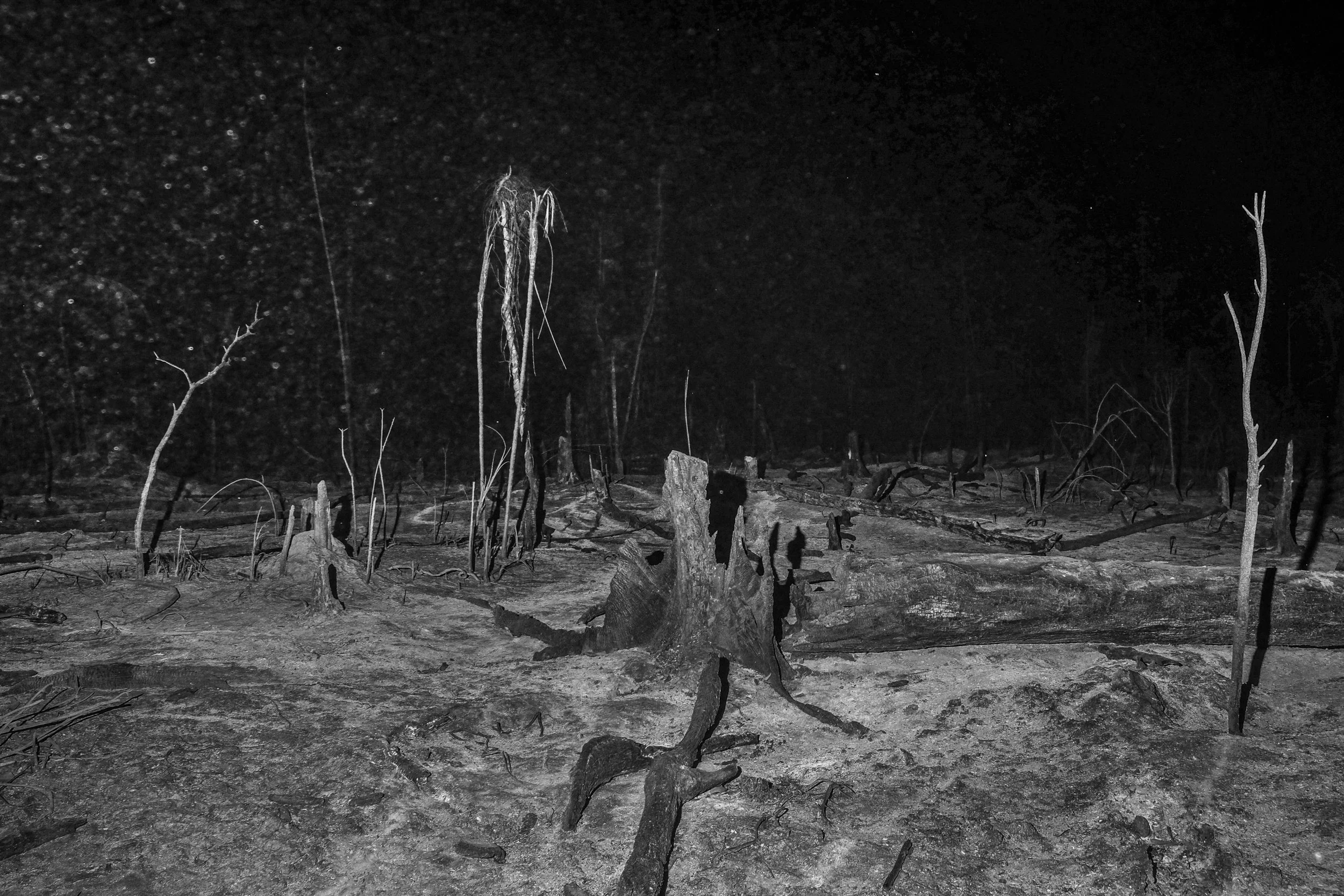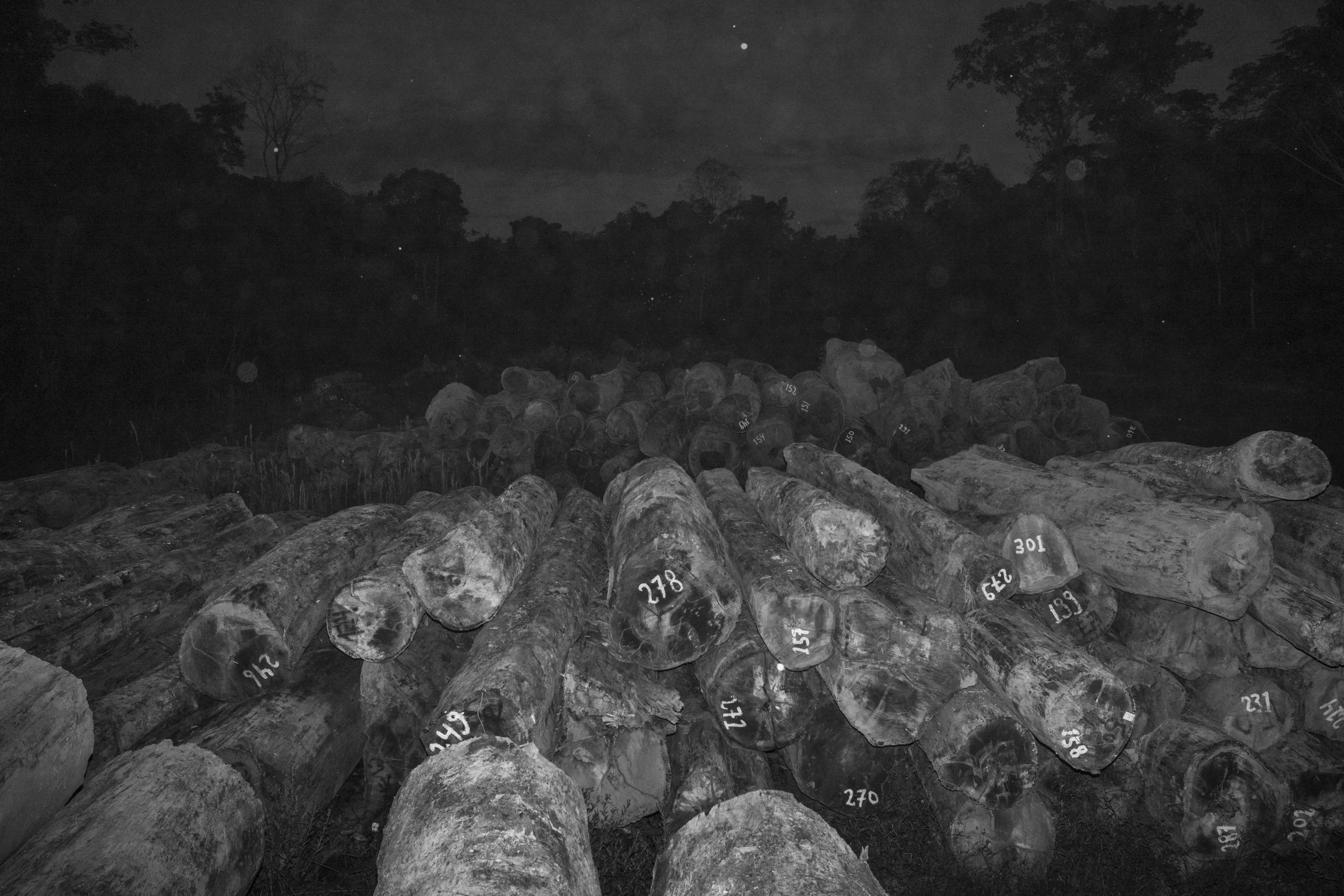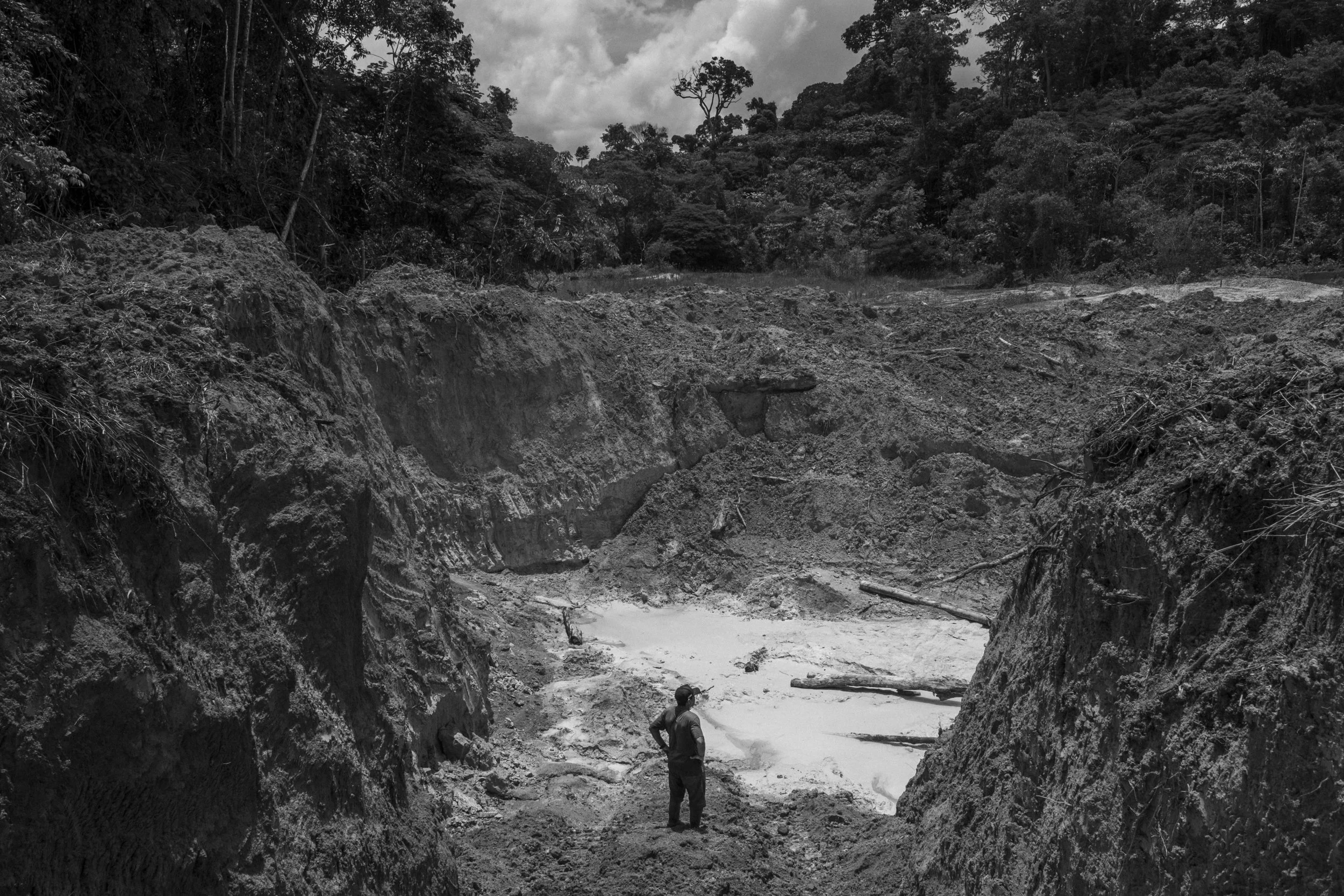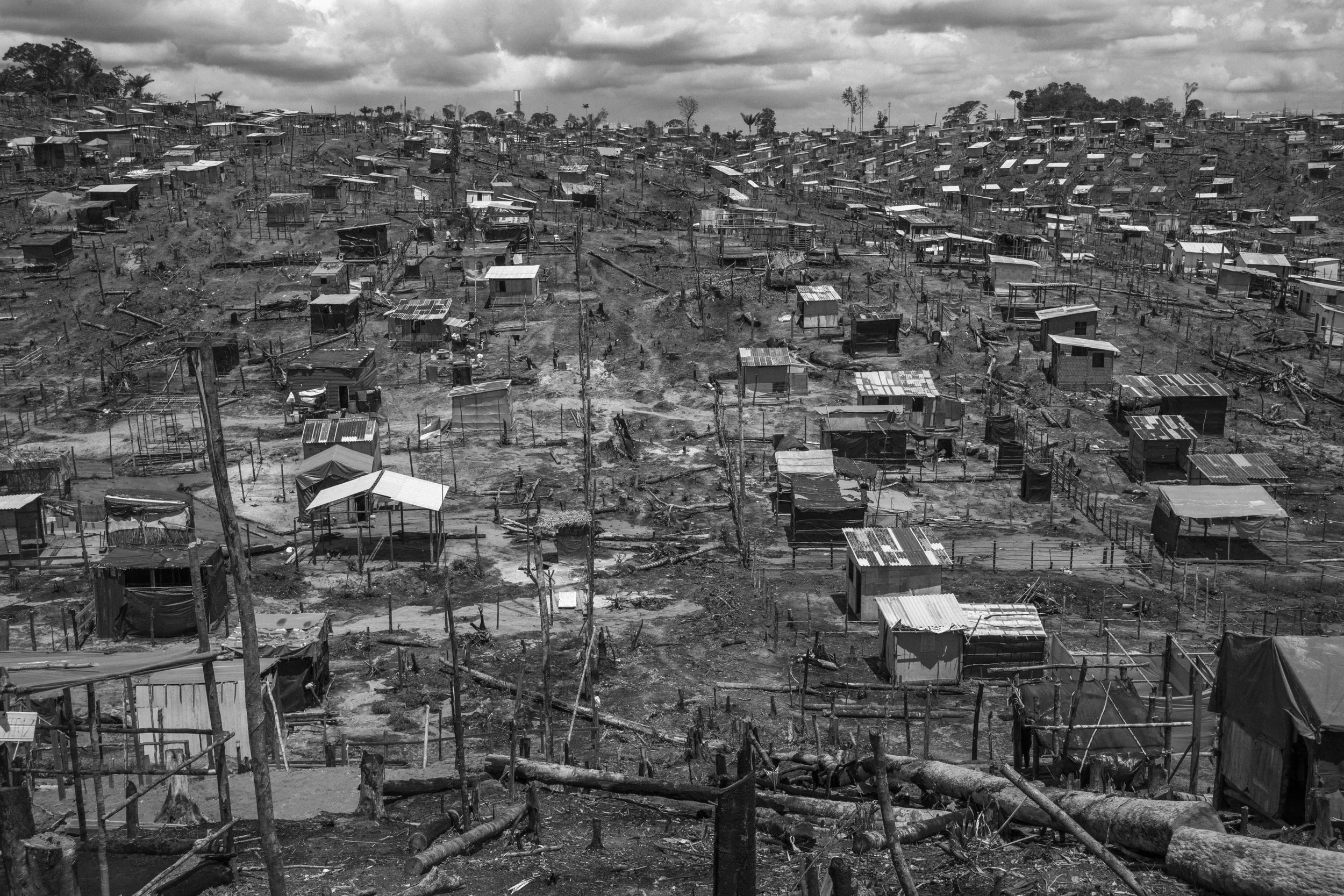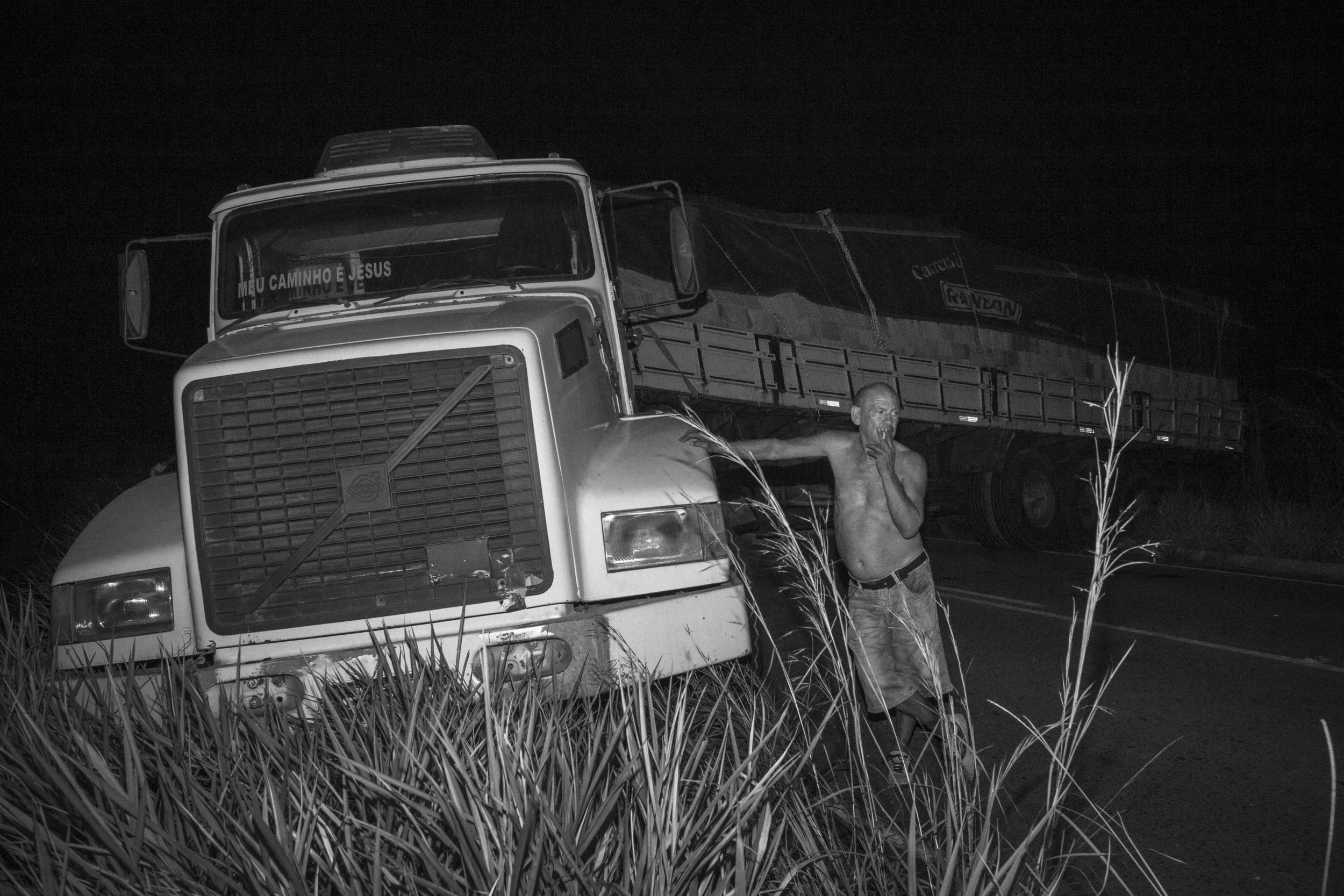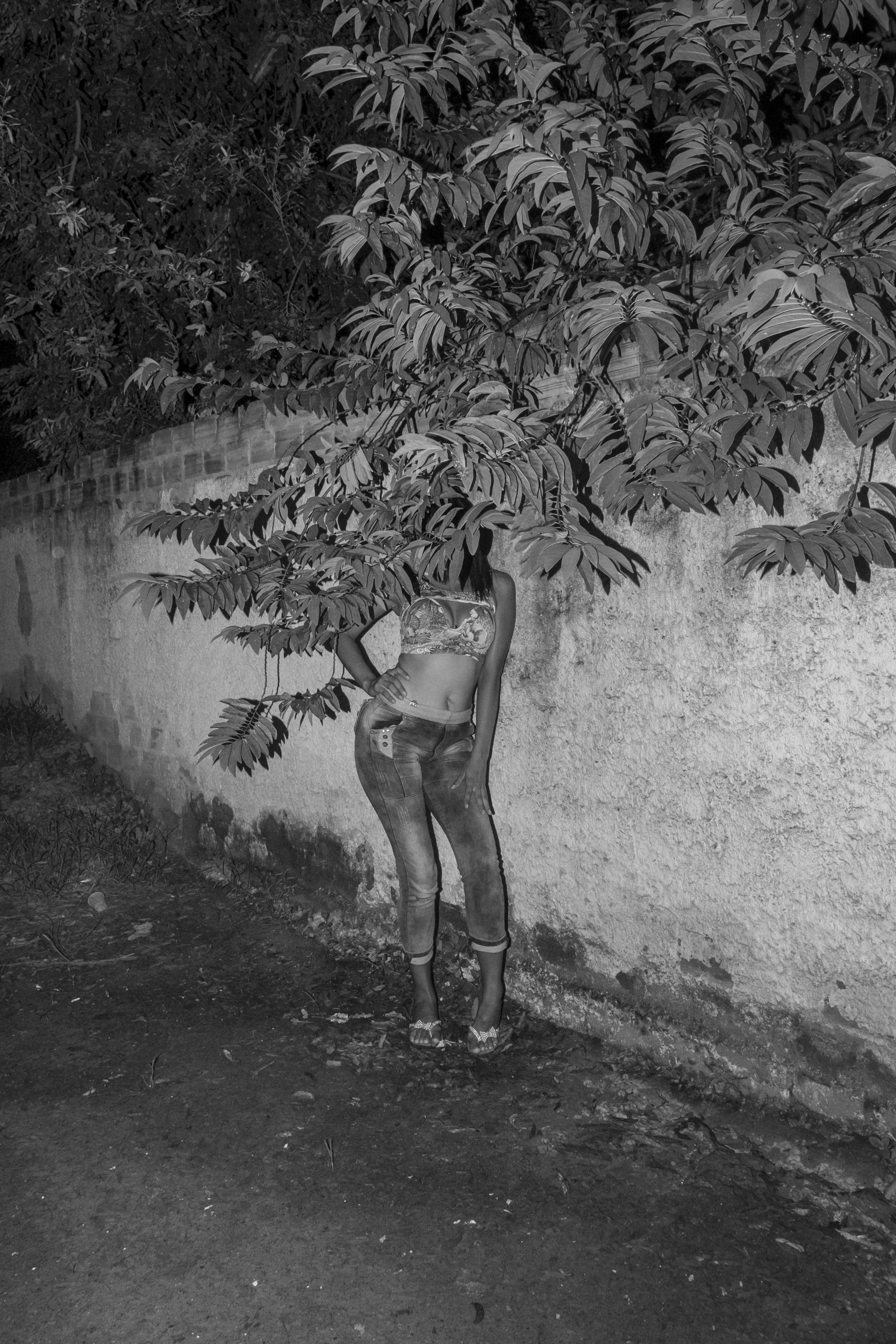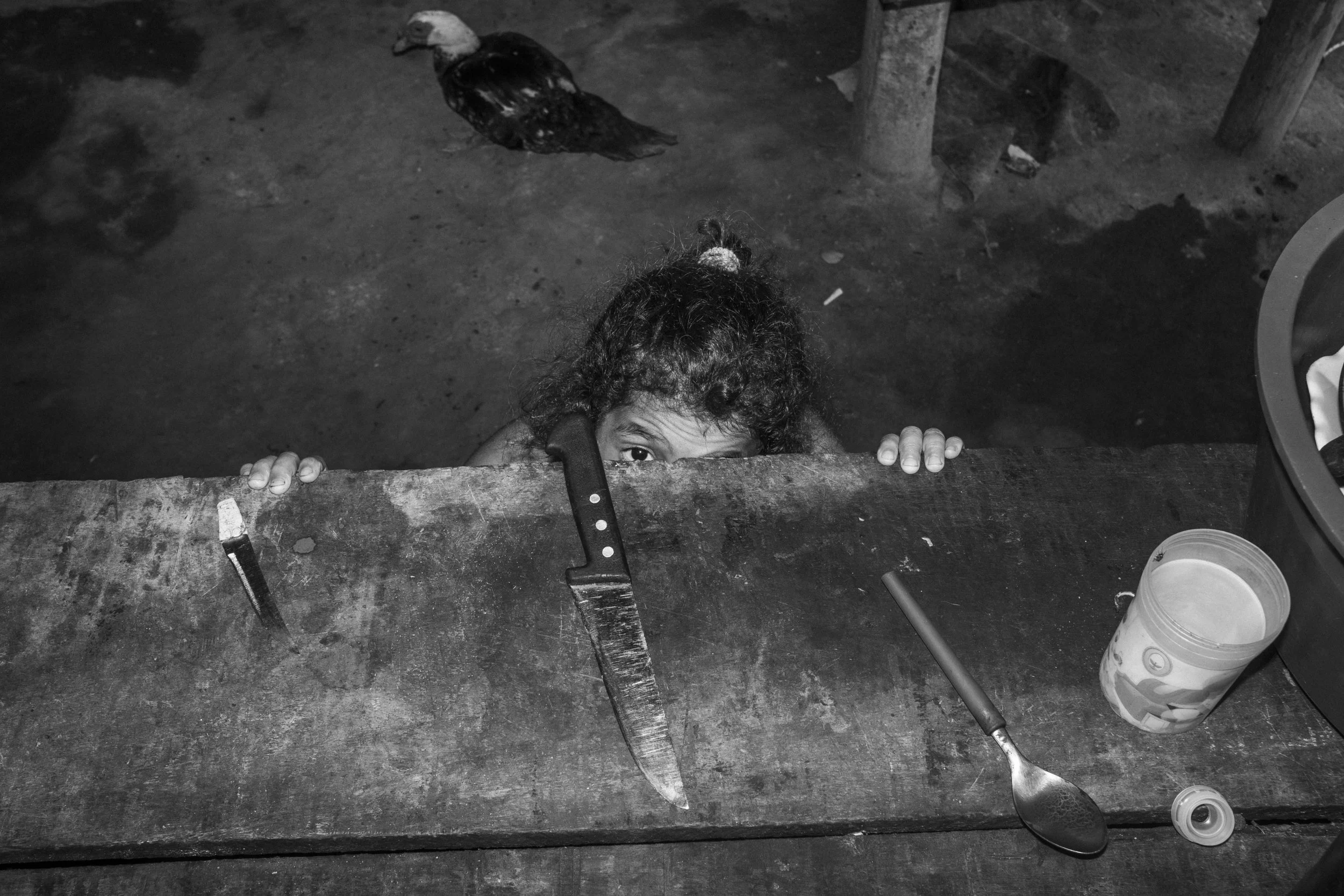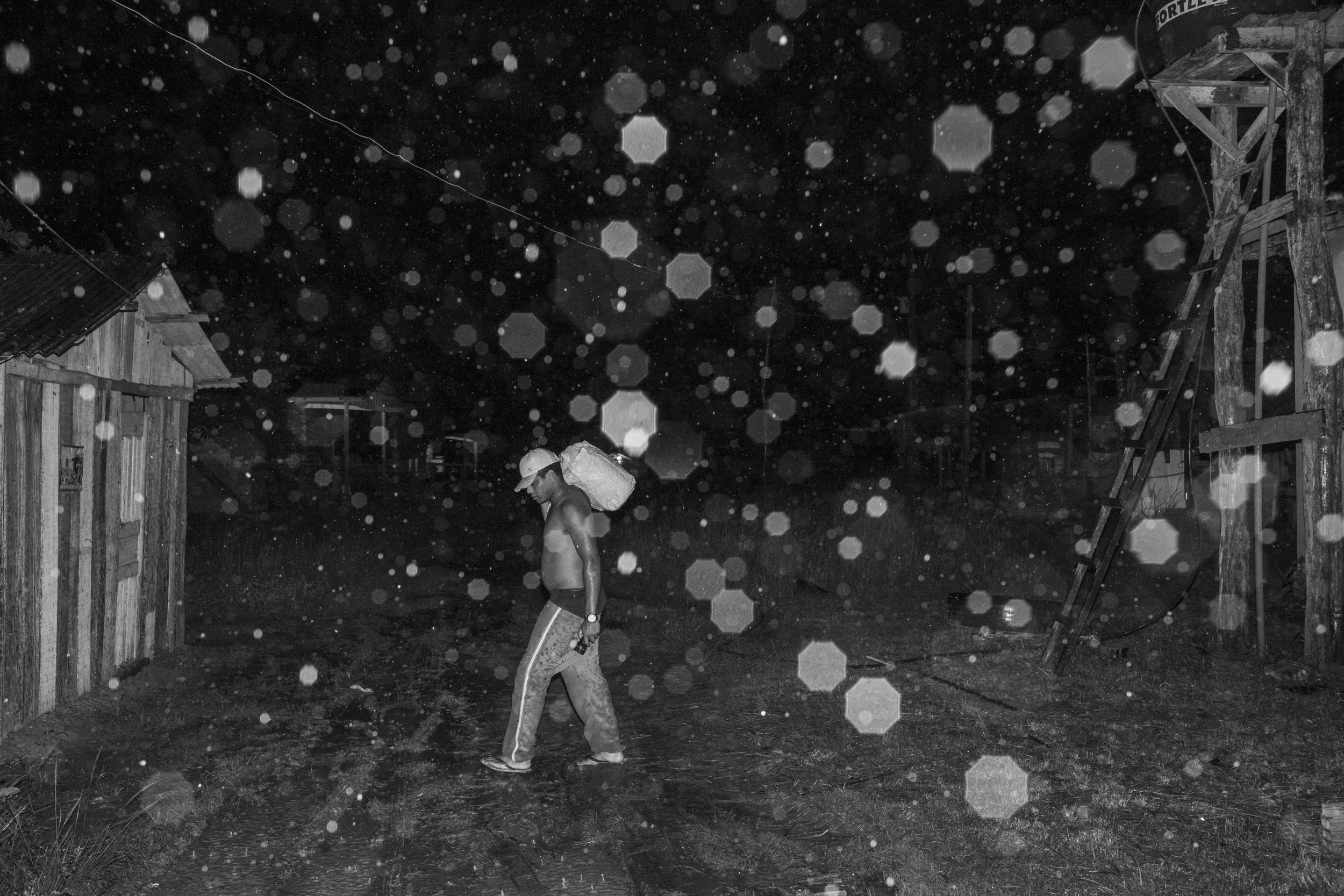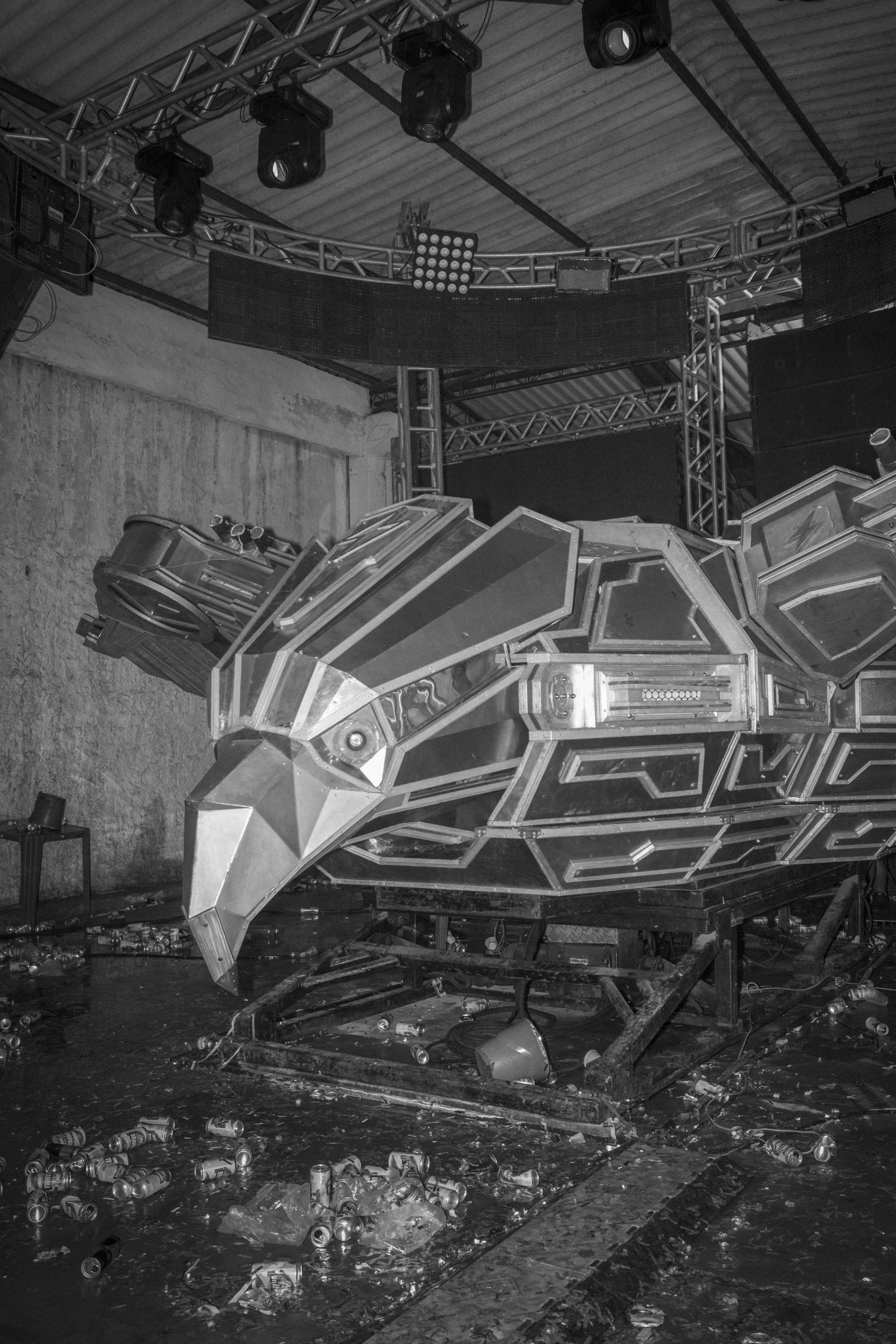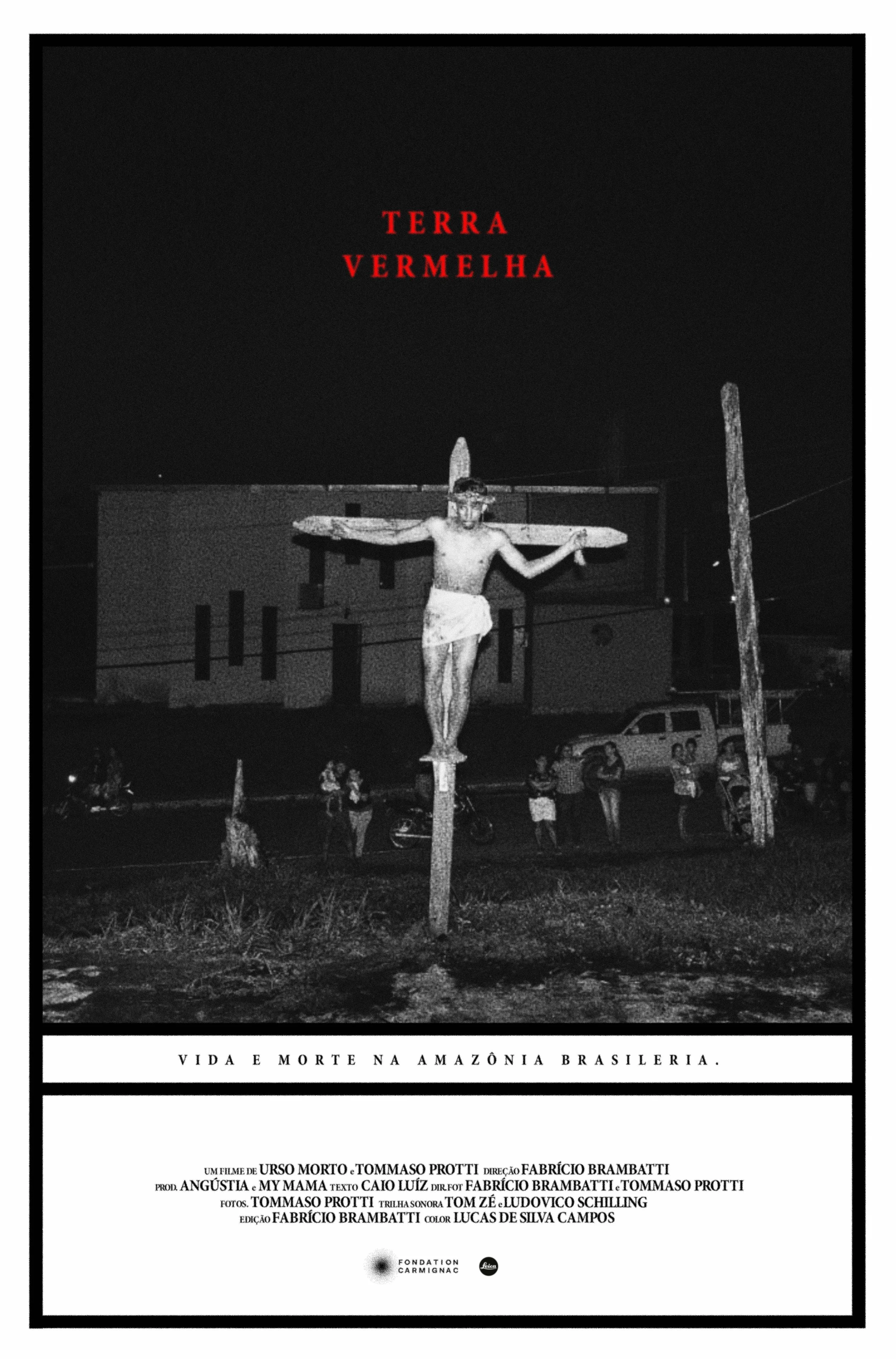Terra Vermelha is a decade-long, ongoing project set in the Brazilian Amazon that explores the complex intersection of social and environmental crises defining the region today. It offers a stark, unromanticized portrait of the contemporary Amazon—not as a pristine sanctuary, but as the stage for a modern dystopia. This is a lawless frontier, a “Wild West” of our time, where violence, exploitation, and resistance collide in a fragile and volatile balance.
Novo Progresso, Pará. 2020
Kayapó Menkrôti block the BR-163 highway in Pará state during a protest against former president Jair Bolsonaro. 2020
Cattle being washed before slaughter at a facility in Uruará, Pará. 2022
A member of the Família do Norte (FDN) drug gang poses with his gun on the outskirts of Manaus, Amazonas state. 2017
Burned fields and deforested land in Jamaxim National Forest, Pará, 2020.
A dead tapir in the Kayapo Indigenous Land, 2019. Its killing marked the beginning of the Kukrut, an ancient Kayapo ritual that had not been practiced for decades.
Sculptures of two jaguars at a water park in Boa Vista, Roraima. 2023.
Roberto Cabral, IBAMA’s operational director and co-founder of the GEF special forces, shares a tender moment with a puppy rescued from a miner’s camp at an illegal gold mining site deep inside the Yanomami Indigenous Territory. 2023.
Members of the Guajajara forest guard patrolling the Araribóia indigenous reserve in Maranhão state beat another indigenous man who they suspect of collaborating with illegal loggers. 2019
Illegal timber seized in the Jamari National Forest in Rondônia state which is constantly targeted by illegal loggers. 2019
Drunken garimpeiros – wildcat miners – in a bar in Crepurizão, a gold mining town in southwestern Pará state. 2019
An illegal gold mine in Pará state. 2022
Kayapo children play behind a waterfall in the Kubenkrãnken indigenous village, in southern Pará state. 2019
Hillside view of the Monte Horebe squatter’s community in Manaus. 2019
A young girl rests on a Styrofoam fish box in Crepurizão, a gold mining town in southwestern Pará. 2019.
A Gavião tribesman performs a ritual in the Governador Indigenous Land, Maranhão state. 2018
A forró music party in Altamira, state of Pará. 2019
A member of the Guajajara forest guard on patrol at the Araribóia indigenous reserve in Maranhão state. 2019
Two young lesbians kiss at an alternative bar in Altamira, Pará state. 2019
Aftermath of a crash caused by a drunk truck driver who blocked the Trans-Amazonian Highway. Pará state, 2014.
An employee inside a soybean storage facility in Sinop, Mato Grosso. 2022.
A deforested area scorched by illegal fires in southern Maranhão, Brazil. 2018.
A Venezuelan woman working as a sex worker waits for clients on a street in Boa Vista, Roraima state. 2017.
The Hugo Chávez Landless Workers' Movement (MST) encampment in Marabá, Pará. 2020.
A landless workers' leader at the Grotão de Mutum MST encampment near Canaã dos Carajás, Pará. 2018.
A family from Brazil’s Landless Workers Movement (MST) at their makeshift home in the Eduardo Galeano encampment near Canaã dos Carajás, Pará. 2024.
A young girl inside her family’s shack in Terra Nossa II, a makeshift settlement of landless peasants occupying public land in Rondônia. 2017.
Crime scene of a homicide in Belém, Pará. 2018.
Funeral workers remove the body of a COVID-19 victim who died at home in Manaus, Amazonas. 2021.
A man carries supplies through the rain at the Hugo Chávez landless workers' camp (MST) in Marabá, Pará. 2018.
Kanamari Indigenous family living on a boat along the Javari River, Atalaia do Norte, Amazonas, 2021.
An inmate protests the inhumane conditions of severe overcrowding inside a cell at the 3rd Urban Police Precinct in Cidade Nova, Ananindeua, Pará. 2016.
A man at home in the Jatobá neighbourhood in Altamira, Pará state. Most of the residents here are Ribeirinhos – Amazon River People - who were relocated from along the banks of Xingu River or from other areas of the city that flooded following the inauguration of the Belo Monte Hydroelectric Dam. 2019.
The Rio Fresco River, which flows through the Kayapo Indigenous Land in Southern Parà state. 2019.
These trees died with the opening of the Belo Monte Hydroelectric Dam in Altamira, Pará state, which flooded 400km2 of forest. 2019.
An eagle-shaped sound system at the end of a techno brega rave in Belém, Pará. 2018.
Kayapo indigenous children play at night in the Kubenkrãnken village, southern Pará state. 2019.
Paulo Paulinho Guajajara (25), also known as Lobo Mau (“Bad Wolf”), was killed on November 1, 2019, in an ambush by illegal loggers inside the Arariboia Indigenous Land, in the state of Maranhão. He was a member of the Guajajara Forest Guard. 2019
Maria Vitoria Oliveira Carniero, 10, has cerebral palsy. She keeps the angel wings in her bedroom because she wants to be a dancer. She lives on the Viver Melhor - Live Better - housing complex in Manaus. 2019.
The climactic crucifixion scene of a community Easter nativity play in Careiro Castanho, a small town 100km from Manaus, in Amazonas state, organized by the local Catholic Church. 2019.
Henry Ford’s abandoned rubber factory at Fordlândia, Pará state. In 1928, Henry Ford set about founding a city in the Amazon based on the American suburban model. 2019.
Renato Gomes de Maria, 59, leader of a community of nut collectors stands beside the Rio Purus River on the Arapixi extractive reserve, Boca do Acre, south Amazonas state. 2019.
An evangelical church stands along the BR-163 highway near Novo Progresso, in Pará state. 2020.
Selected Exhibitions
Short Film
Books
Throughout history, the struggle for land has defined the course of humanity.
Colonialism, power struggles, ideological and identity-based conflicts, and wars over natural resources are all chapters of the same ongoing narrative: the relentless pursuit of territorial control.
In the Amazon, these battles for land converge. Beneath and above its vast red earth lie some of the world’s greatest treasures — ancestral cultures, immense mineral wealth, over 10% of the planet’s biodiversity, and an irreplaceable role in regulating global rainfall and climate.
In the absence — and often negligence — of the State, the Amazon is still seen by land grabbers, illegal miners, loggers, drug traffickers, business interests, and corrupt politicians as a territory to be conquered, even at the cost of fire and blood.
Terra Vermelha, by Italian photojournalist Tommaso Protti, tells the story of this Amazon — where long-ignored environmental issues intersect with modern-day crises such as the advance of agribusiness and the explosive growth of urban peripheries.
A cross between documentary photography, investigative journalism, and artistic experimentation, this exhibition is the result of a decade-long journey across the nine states of Brazil’s Legal Amazon.
Along highway BR-163, which stretches from Cuiabá in Mato Grosso to Santarém in Pará, Protti captures the ruthless advance of cattle ranching, soybean plantations, and illegal mining — forces that drive Indigenous peoples from disease-ravaged communities into cities in a desperate search for food and medicine.
In Pará, the dramatic expansion of urban outskirts is visible in places like Altamira, a city transformed by the Belo Monte hydroelectric dam and, in 2017, ranked as Brazil’s homicide capital. Organized crime, which exploits the region’s rivers as drug-trafficking routes and uses illegal gold mining to launder money, is fueling a prison system on the brink of collapse — as seen in the overcrowded penitentiaries of Manaus.
In Novo Progresso, a billboard supporting former president Jair Bolsonaro — a staunch opponent of Indigenous land demarcation and a supporter of illegal miners — reveals how the war is also political. Meanwhile, in remote riverside communities of Apuí, Amazonas, the proliferation of small evangelical churches highlights how even faith becomes a battleground.
Not even the most remote areas are spared. In the Javari Valley — where British journalist Dom Phillips and Brazilian Indigenous expert Bruno Pereira were murdered — Protti documents how the region with the highest number of uncontacted tribes on Earth is becoming a new frontier for environmental crimes, drug trafficking, and the evangelization of traditional communities.
But there is no attack without resistance.
In Arariboia, Maranhão, Indigenous patrol groups have formed to defend their territory, where fires and illegal deforestation have already wiped out 75% of the forest cover. In Yanomami territory, Roraima, elite military units continue their efforts to expel illegal miners, even as they admit to fighting a losing battle.
Terra Vermelha is also a testament to the resilience and resistance of the Kayapó, Guajajara, Canamari, Karipuna, and Yanomami peoples — guardians of their identity, culture, and the natural resources that must be preserved, not exploited.
More than a story about nature, Terra Vermelha is a reflection on human nature — on greed and poverty, destruction and survival, exploitation and resistance. Through Protti’s lens, we come to understand that in the fight for a land that already has owners — the forest itself — we are all the ones who lose.
— Carol Pires

6Mois








LFI








GEO Magazine









Newsweek Japan



Internazionale








